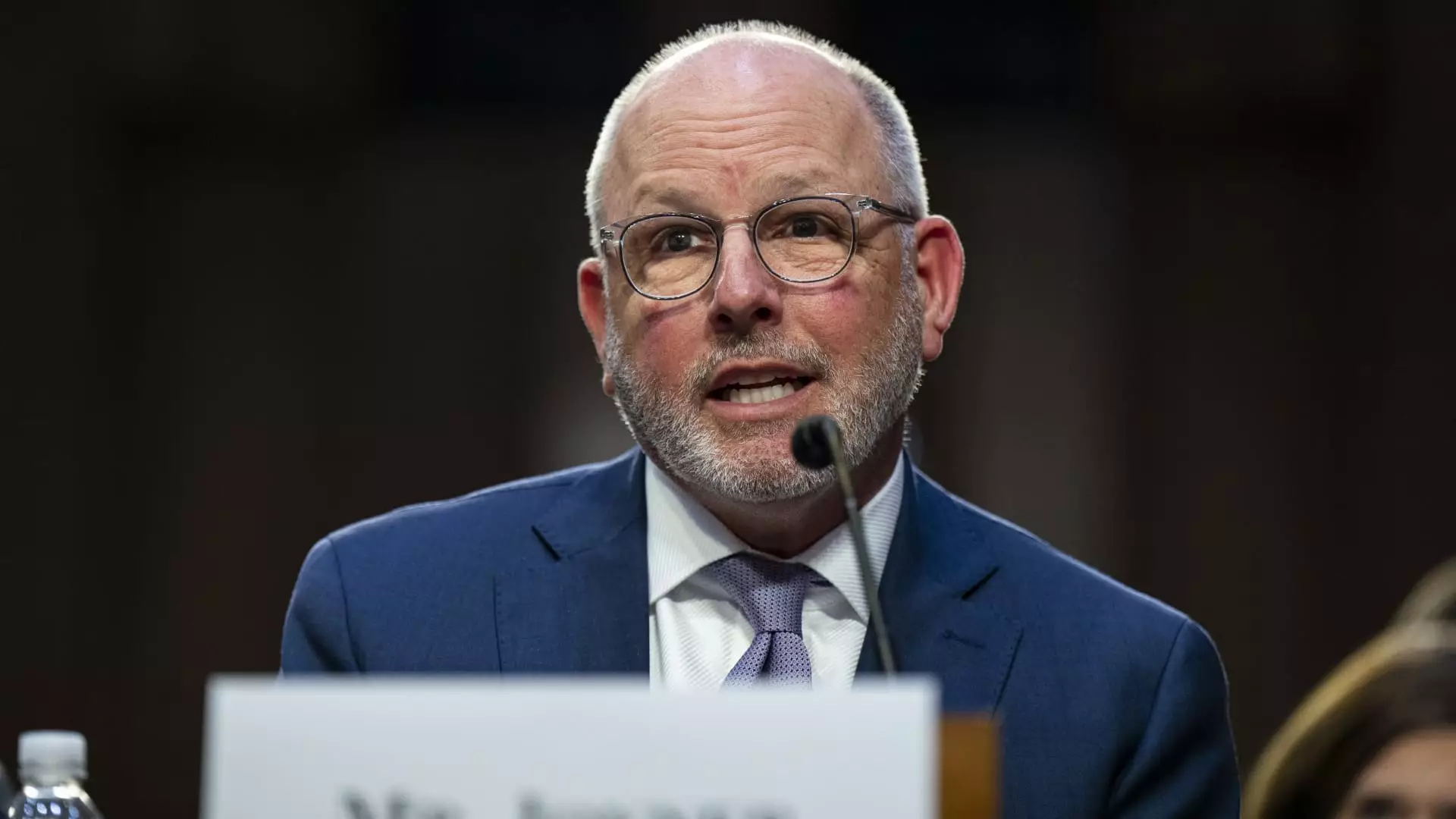In an unexpected turn of events, CVS Health has appointed David Joyner as its new CEO, succeeding Karen Lynch. This strategic decision, effective just before the announcement, signals the company’s urgency to address persistent financial challenges and declining stock performance. As CVS grapples with nearly a 20% drop in share value this year and an alarming 11% decrease observed in premarket trading following Joyner’s appointment, the pressure mounts to cultivate a robust corporate strategy that can restore investor confidence.
Joyner’s entry as CEO comes at a critical juncture for CVS, which has seen its insurance unit, Aetna, straining under rising medical costs. Concurrently, the retail pharmacy division faces headwinds from diminished consumer spending and reimbursement challenges related to prescription drugs. This multifaceted dilemma was compounded by a grim forecast from the company, which warned of elevated medical expenditures and marked its third consecutive quarter of slashed profit guidance. The company’s newly issued earnings expectations for the third quarter hover between $1.05 and $1.10 per share, a stark indication of the financial pressures at play.
Strategic Changes and Stakeholder Responses
CVS’s decision to revise its financial outlook reflects deeper issues likely fueling shareholder dissatisfaction, particularly from major stakeholders like Glenview Capital, which has notably called for transformative changes within the organization. This necessitated the engagement of strategic advisors to explore various options, including a potential divestiture of CVS’s insurance and retail segments. However, the company has chosen to maintain its current structure, opting instead to work within its existing framework under the leadership of Joyner.
Joyner’s previous role as president of Caremark—the company’s pharmacy benefits manager—places him in a prime position to understand CVS’s intricate operations and the wider challenges facing the healthcare sector. His return to CVS, following a brief retirement, signifies a commitment to advancing the company’s objectives, as articulated in his statement about his motivations for leading CVS at this challenging time.
In this evolving landscape, Joyner faces the pressing challenge of navigating increased scrutiny from federal regulators. Just last month, the Federal Trade Commission instituted legal action against Caremark and its competitors, citing unethical practices that inflate costs for essential medications like insulin. Regulatory pressures further complicate CVS’s operational strategy as it seeks to align its business practices with public and governmental expectations.
Moreover, Joyner will have to address the rising healthcare costs attributed to Medicare Advantage patients. As hospitalization rates surge, with many seniors seeking care for postponed procedures during the pandemic, Joyner must find a way to ensure a sustainable business model while also fulfilling the needs of an aging population. CVS executives previously indicated a targeted improvement in Medicare Advantage margins, aiming for a noteworthy increment of 100 to 200 basis points next year.
As Joyner steps into his new role, the question remains: can he revitalize CVS Health’s fortunes amid a shifting healthcare landscape? CVS is bracing for an uptick in medical costs for its third-quarter earnings report, projecting a medical benefit ratio of about 95.2%—a concerning shift from last year’s 85.7%. This escalation in medical expenses must be managed carefully to maintain profitability and reassure investors who have witnessed recent financial volatility.
The announcement also marked a significant change within CVS’s board dynamics, as Lynch departed from her role and Joyner assumed a board seat alongside Chairman Roger Farah, who is transitioning to executive chairman. This leadership reshuffle reflects a broader strategy by CVS to unify its leadership as it works through pressing challenges while refocusing on its core competencies.
David Joyner faces a daunting but critical mission at CVS Health as he attempts to steer the company through turbulent financial waters. A combination of strategic foresight, operational improvements, and regulatory compliance will be essential for restoring CVS’s standing in the market and enhancing the value it provides to its patients and shareholders alike. The coming months will prove pivotal as Joyner and his team lay the groundwork for a more resilient CVS Health.

